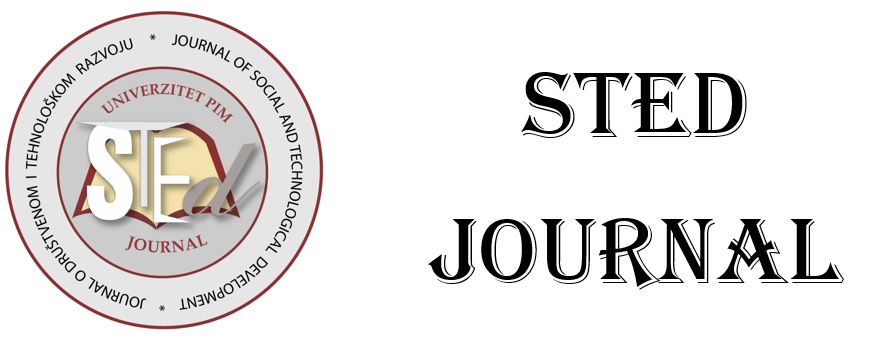
More articles from Volume 2, Issue 1, 2020
PHYTOCHEMICAL STUDY TO VALIDATE THE ETHNOBOTANICAL IMPORTANCE OF Dioscorea steriscus TUBERS OBTAINED FROM ZIMBABWE
DEVELOPMENT OF GEOGRAPHIC INFORMATION SYSTEM IN EDUCATION BY USING THE RATIONAL UNIFIED PROCESS IN BANDUNG
PORODIČNA AFEKTIVNA VEZANOST KOD SUICIDALNIH PACIJENATA
THE PARADOXICAL RELATIONSHIP OF COGNITION AND NONCOGNITION
ANALYSIS OF APPROACHES TO THE MATERIAL FLOW IN THE PRODUCTION PROCESS WITH THE USE OF SIMULATION
Article views
THE PARADOXICAL RELATIONSHIP OF COGNITION AND NONCOGNITION
Faculty of Philosophy, University PIM , Banja Luka , Bosnia and Herzegovina
Received: 02.10.2019.
Accepted: 18.03.2020. >>
Published: 26.05.2020.
Volume 2, Issue 1 (2020)
pp. 28-35;
Abstract
The research was carried out from April to July 2019, in Republika of Srpska. The sample was suitable. It was made up of
294 respondents aged between 15 and 73. The average age of the respondents was 22,92 years. Male respondents numbered 120 or 40,82%, and females 174 or 59.18%. Independent variables are gender and age. The dependent variable is the level of the cognitive component of the social attitude. Milosavljevic's Skala PARADOKHIP & BM-2006-02-26 was used to examine the levels of cognitive component of the social attitude. The aim of the research was to verify the hypothesis about the paradoxical Relationship of cognition and non-cognition in the cognitive component of the social attitude, according to which a greater scope of the cognitive component of the social attitude corresponds to an even greater extent of the experience of non-cognition (not-knowing) and vice versa. It has been confirmed that the greater scope of cognition in the cognitive component of the social attitude corresponds to an even greater extent of the experience of noncognition, regardless of the gender of the respondents. With the aging, there is also a growing awareness that a greater scope of cognition in the cognitive component of the social attitude corresponds to an even greater extent of the experience of noncognition, and the existence of statistical significance (p<.05) has been confirmed between the categories of subjects aged 15- 18 and 24-73.
Keywords
References
Citation
Copyright
All papers are licensed under a Creative Commons Attribution 4.0 International License.
Article metrics
The statements, opinions and data contained in the journal are solely those of the individual authors and contributors and not of the publisher and the editor(s). We stay neutral with regard to jurisdictional claims in published maps and institutional affiliations.











